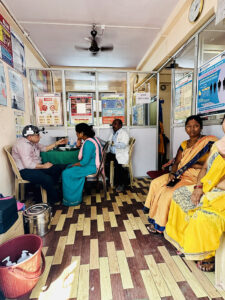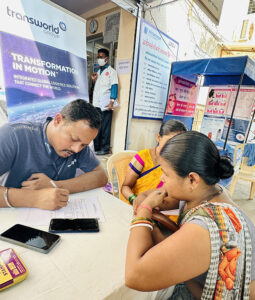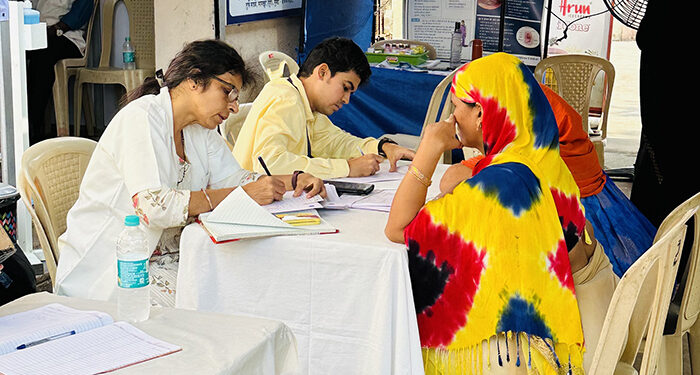- Niramaya Health Foundation in collaboration with Indian Cancer Society in Mankhurd, Mumbai holds the camp
- Out of the 73 women screened, 4 had earlier symptoms of oral, breast and cervical cancers and were sent to Tata Memorial Centre for further diagnosis and treatment
- According to the World Health Organization (WHO), roughly 50% of breast cancers occur in women with no specific risk factors other than sex and age
NE HEALTH BUREAU
MUMBAI, OCT 23
India-based Transworld Group, a leading Global Shipping & Logistics Solution conglomerate recently held a breast cancer screening and awareness camp for women from low-income communities in Maharashtra Nagar, Mankhurd, Mumbai, to encourage early detection and treatment.


The screening and awareness camp was conducted by not-for-profit organisation Niramaya Health Foundation in collaboration with Indian Cancer Society in Mankhurd, Mumbai. The camp included screenings for cervical cancer and oral cancer, and awareness sessions. Out of the 73 women screened, 4 had earlier symptoms of oral, breast and cervical cancers and were sent to Tata Memorial Centre for further diagnosis and treatment. Transworld employees were also involved in boosting the morale of the beneficiaries who participated in the camp.

Anisha Ramakrishnan, Director of Corporate Responsibility, Transworld Group, said: “At Transworld Group, our Corporate Social Responsibility activities are focused on holistic growth and development of the communities we work with. In line with that vision, we empower them with opportunities across education, livelihood and health and well-being, among others, to enable them to take charge of their futures.”
World over, breast cancer is the most common cancer contributing to 12.5% of new annual cases making it the most common . Transworld Group’s initiative to enable women to take charge of their own health and well-being coincides with Breast Cancer Awareness Month.
According to the World Health Organization (WHO), roughly 50% of breast cancers occur in women with no specific risk factors other than sex and age , making regular screenings crucial to enable timely detection and treatment.









